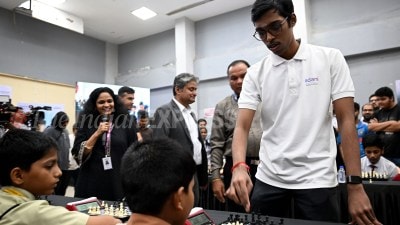Legal Weekly: Man acquitted after 21 years in jail; top judgments of the week
Legal Weekly is a compilation of landmark rulings passed by the Supreme Court and the High Courts of the country during the week. Read upon how Railways had to heavily compensate for an employee's weakened health during the job and how a caste cannot be changed post-marriage.
 Since every accused person is presumed to be innocent person till he is held guilty, the seriousness of the allegations against the petitioner cannot be a ground to deny him the facilities available to all the under-trial prisoners unless there are special reasons for denying so,” said the court.
Since every accused person is presumed to be innocent person till he is held guilty, the seriousness of the allegations against the petitioner cannot be a ground to deny him the facilities available to all the under-trial prisoners unless there are special reasons for denying so,” said the court.
Himachal Pradesh High Court: Brahmins cannot change caste marrying an SC/ST
The petitioner, belonging to a Brahmin caste, married her husband from the Scheduled Tribe category in 1972. In 1985, she was issued a Scheduled Tribe certificate and by the virtue of the certificate, she received a job as a primary teacher at a government school. 25 years later, she was chargesheeted for applying for a job on the basis of a false certificate and in 2014 the Sub Tehsil officer issued a cancellation of her certificate.
The court cited many judgments and held that, “By birth petitioner did not belong to a Scheduled Tribe category, she could not have gained status thereof, by simply marrying a person belonging to such category, we do not find any illegality with the action of the authorities whereby Scheduled Tribe certificate issued in her favour was cancelled and employment obtained by her on the strength of said certificate was terminated.”
Allahabad High Court: After 21 years in jail, court releases man for lack of evidence
The appellant was held guilty for killing a man in 1996 and was sentenced to life imprisonment by the trial court. Having served nine years in prison, the appellant filed an appeal in the Allahabad High Court and the case had been pending in court ever since. On Wednesday, the high court acquitted the appellant due to lack of evidence and noted that delay in disposal of cases has become a serious issue.
“Delay in the context of justice denotes the time consumed in the disposal of case, in excess of the time within which a case can be reasonably expected to be decided by the Court. No one expect a case to be decided overnight. However, difficulty arises when the actual time taken for disposal of the case for exceeds its expected life span and that is when we say there is a delay in dispensation of justice,” observed the high court.
Bombay High Court: Undertrial prisoner entitled to get home cooked food
A Bombay trial court ruled that the undertrial prisoner lodged in Latur jail be allowed to have home cooked food. The prosecutor opposed the trial court’s order and stated that the undertrial was charged with heinous crimes like murder, kidnapping and gangrape, adding that under the Prison’s Act 1984, home cooked food was not allowed to such criminals.
Responding to the prosecutor, the high court stated, “Since every accused person is presumed to be innocent person till he is held guilty, the seriousness of the allegations against the petitioner cannot be a ground to deny him the facilities available to all the under-trial prisoners unless there are special reasons for denying so.”
Allahabad High Court: Railways directed to pay compensation to employee who was medically-decategorised for deteriorating eyesight
An Assistant Yard Master in the Indian Railway, the respondent was drawing a salary between Rs. 1,600-2,660. Gradually, his eyesight declined. So in 1992 he was medically de-categorised and was allotted to receive an increase in pay. Instead, he was assigned another position of a Head Posting Clerk, but with a lesser salary. Following this, the respondent appealed to the Central Administrative Tribunal (CAT) in 2002 which, directed the Railway authorities to pay the respondent the pay scale that was earlier decided.
Upon CAT’s direction, the Railways approached the high court. The high court, however, ruled against the Railways and directed the authorities to pay his pending salary along with post-retirement dues, calculated in the pay scale between Rs. 1,600-2,660. The court further imposed a seven per cent interest on the pay from the date of CAT’s order to be paid to the respondent.
To this effect the court put a fine of Rs. 50,000 on Railway authorities and directed to compensate the respondent. “Since the respondent no.1 was dragged into litigation for no fault on his part and has suffered harassment on account of monetary deprivation on account of fault on the part of the petitioners, therefore, the petitioners are liable to be saddled with heavy cost,” the court said.
- 01
- 02
- 03
- 04
- 05































